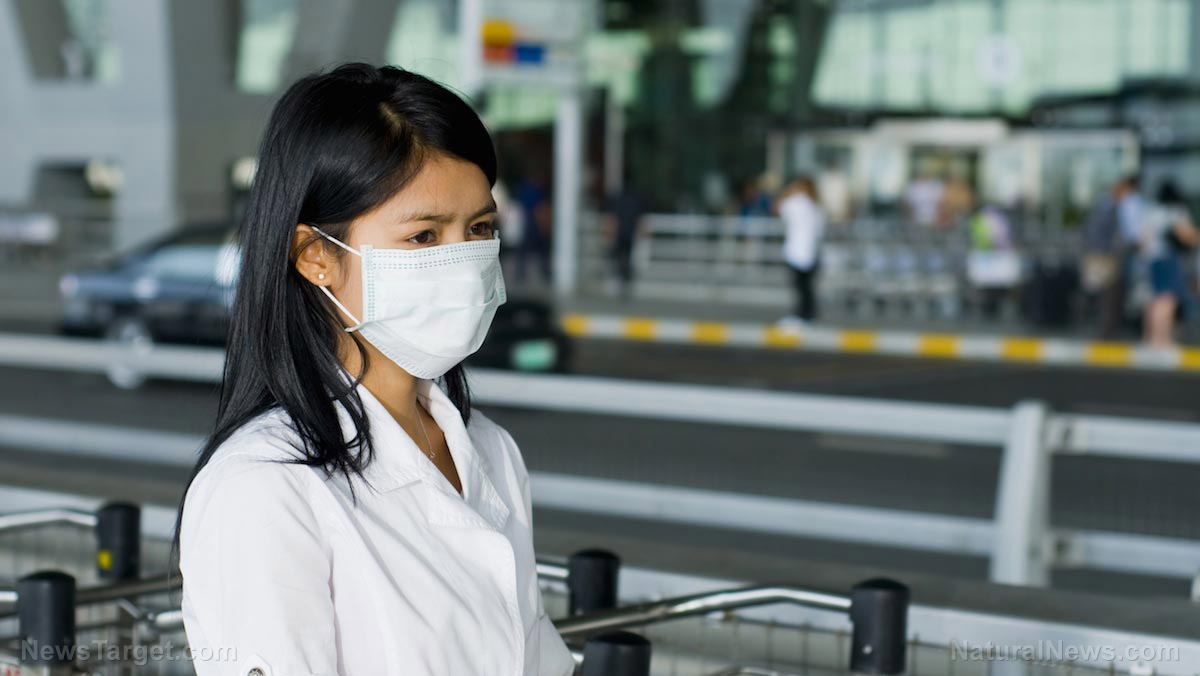After mis-blaming Norwegian salmon, China admits it doesn’t know where Beijing’s new coronavirus outbreak came from
07/08/2020 / By Franz Walker

After initially blaming the capital’s resurgent Wuhan coronavirus (COVID-19) outbreak on contaminated Norweigian salmon, Beijing health authorities have now backtracked, admitting that they don’t know where the new outbreak came from.
Wu Zunyou, chief epidemic specialist at the Chinese Center for Disease Control and Prevention (China CDC), told the state-run Beijing News on July 6 that the virus likely entered the Xinfadi market sometime in May. This contradicted previous statements from health officials that claimed that the city’s new outbreak came via frozen salmon from Norway.
“It’s possible that an infected person brought [the virus] to the Xinfadi market, or a contaminated product from an epidemic area brought it,” said Wu.
Imported salmon mis-blamed for the outbreak
State media first reported claims that the second wave in Beijing came from imported Norwegian salmon in mid-June. Back then, traces of the virus were supposedly found in the chopping board of a seller of imported salmon in the giant Xinfadi wholesale market. (Related: Schools close as Beijing sees fresh coronavirus outbreak.)
Xinfadi supplies 80 percent of Beijing’s meat and vegetables. Unlike the market in Wuhan, however, there is no evidence of the wildlife trade in Xinfadi.
A spokesman for the Beijing Municipal Health Commission, however, stated that traces of the virus had also been found in some 40 other samples from the market, some of which were not from chopping boards used for imported salmon.
Following this, China CDC announced that there was no evidence that salmon was the host for the virus. According to Shu Guoqing, deputy director of China CDC’s emergency response center, there was no trace of the virus on the salmon before it reached Xinfadi.
Shu’s statement suggests that the coronavirus was already present in the market, rather than in the salmon, something that other experts agree with.
“Viruses must rely on the viral receptor on the host cell surfaces to infect cells. Without the certain receptor they cannot enter into cells successfully,” said Cheng Gong, a virologist at Tsinghua University. “All known evidence so far suggests this kind of receptors exist only in mammals, not fish.”
China CDC’s Wu also agreed, saying that fish, such as salmon, could not catch the coronavirus in the wild. That said, he conceded that it was possible that they were contaminated by workers during their capture or transportation.
Mis-blaming caused panic, salmon exporters affected
While China CDC has cleared salmon as the source of Beijing’s resurgent outbreak, that didn’t stop people from panicking over it.
Restaurants and supermarkets across Beijing rushed to pull salmon off their menus and shelves. Meanwhile, orders of the fish were canceled, and imports halted.
China only represents a small share – less than 5 percent last year – of the global salmon market. That said, the country is also one of the fastest-growing markets for salmon and fish farmers who were already hurting from pandemic restrictions.
In the Oslo stock exchange, most salmon stocks also fell after the now erroneous report of the fish carrying the virus hit. Bakkafrost, the largest salmon producer in the Faroe Islands, saw their stocks dip as much as 4.2 percent by June 16 after they halted all their shipments to China.
China is looking for another country to blame
As criticism has mounted for China’s handling of the pandemic, the country has made repeated attempts to distance itself from the blame, even going as far as to place the blame on other countries.
Following the salmon incident, China turned its sights on Spain, claiming that the latter was the true source of the coronavirus. Chinese officials cited research that supposedly found traces of the coronavirus in Barcelona’s wastewater as far back as March of 2019.
Independent experts, however, have cast doubts on the research China cited, saying that it was flawed and that most evidence strongly points to the virus first emerging in China in late 2019.
This incident, alongside the mis-blaming of salmon for Beijing’s outbreak, raises alarms on how far China is willing to go to avoid blame for the pandemic. Even as authorities backtrack on earlier statements and admit that they don’t really know where the latest outbreaks are coming from, the initial claims already have far-reaching consequences beyond China’s borders.
It seems, however, that China isn’t afraid of these consequences as it looks to avoid blame for the ongoing pandemic.
Sources include:
Tagged Under: Beijing, China, China CDC, communism, coronavirus, covid-19, disease, Flu, government, infections, Norway, outbreak, pandemic, salmon, superbugs





















